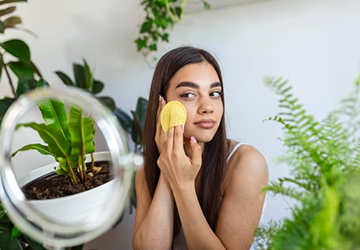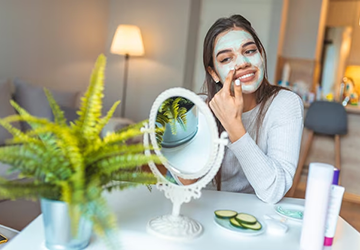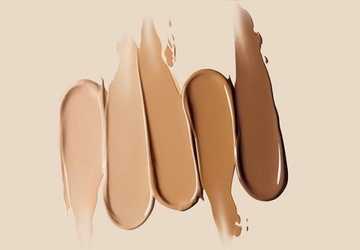beauty
The journey to managing acne leads many to explore home remedies for acne. These remedies are convenient, cost-effective, and gentler on the skin than harsh chemical treatments. DIY acne treatment has gained popularity, allowing individuals to use simple, natural ingredients often available in their homes. These remedies range from herbal concoctions to common kitchen ingredients, each possessing unique properties beneficial in treating acne. It's important to understand that while these remedies can be effective, they may provide little results and should be used consistently as part of a comprehensive skincare routine.

Diverse and Natural Approaches to Acne Treatment
Exploring natural ways to treat acne leads to many options, each harnessing the natural properties of particular ingredients. For instance, apple cider vinegar, known for its antibacterial and anti-inflammatory qualities, can be a toner to help balance the skin's pH and reduce acne breakouts. Another effective natural remedy is using essential oils like tea tree oil, which has been shown to reduce the severity of acne due to its antimicrobial properties. When using essential oils, it's crucial to dilute them properly to avoid skin irritation. Additionally, aloe vera's anti-inflammatory and healing benefits make it an excellent choice for soothing acne-prone skin and promoting healing.
Creating Your DIY Acne Treatments with Everyday Ingredients
When it comes to DIY acne treatment, the possibilities are vast. For example, creating a paste from baking soda and water offers a simple yet effective exfoliating treatment that can help unclog pores and reduce the appearance of acne. Similarly, using a mixture of cinnamon and honey can create a potent anti-inflammatory and antibacterial mask, ideal for reducing acne and soothing the skin. Another effective home remedy involves using lemon juice as a spot treatment, thanks to its natural astringent properties that can help dry out pimples and reduce excess oil. It's essential to approach these treatments carefully, as overuse or improper application can lead to skin irritation or dryness.
Integrating Home Remedies into a Balanced Skincare Routine
While home remedies for acne can be effective, they should be integrated into a balanced skincare routine for optimal results; this involves understanding the underlying causes of your acne, using gentle cleansers, and maintaining a regular skincare regimen that includes moisturising and sunscreen application. It's also important to be mindful of potential skin sensitivities and to perform patch tests when trying new treatments. Natural ways to treat acne complement medical treatments and should be considered part of a holistic approach to skin health.
Lifestyle and Dietary Considerations in Acne Management
In managing acne, it's crucial to consider the broader picture, which includes diet and lifestyle factors. A diet rich in fruits, vegetables, whole grains, and lean proteins can support skin health, while reducing processed foods and sugar intake may help reduce acne flare-ups. Staying hydrated, getting enough sleep, and managing stress are vital to maintaining healthy skin. By combining these lifestyle habits with home remedies for acne, individuals can create a comprehensive plan for managing acne naturally and effectively.
Exploring Lesser-Known Home Remedies for Acne
In addition to the well-known home remedies for acne, there are lesser-known yet equally effective natural treatments worth exploring. For example, neem leaves, revered in Ayurvedic medicine, have potent antibacterial properties that can combat acne-causing bacteria. A paste from ground neem leaves and water applied as a face mask can help reduce acne and skin inflammation. Another unique remedy involves witch hazel, a natural astringent that can reduce inflammation and soothe irritated skin, making it a valuable addition to DIY acne treatment regimens.

The Role of Herbal Teas in Acne Treatment
Herbal teas also play a significant role in natural ways to treat acne. Drinking green tea, known for its antioxidant properties, can help reduce inflammation and hormone levels associated with acne. Topically, applying cooled green tea bags or a green tea infusion can act as a gentle toner, providing skin-soothing benefits. Similarly, spearmint tea has been studied for its potential to reduce acne by decreasing androgen levels in the body, making it a unique and natural option.
Incorporating Fruits and Vegetables in Acne Remedies
Fruits and vegetables can be powerful allies in the quest for clear skin. For instance, tomato pulp, rich in lycopene and vitamins, can be applied to the skin to help reduce oiliness and shrink pores. Cucumber, known for its hydrating and anti-inflammatory properties, can be used as a soothing face mask, ideal for calming acne-prone skin. These natural ingredients enhance the effectiveness of home remedies for acne and contribute to overall skin health when included in the diet.
Understanding the Importance of Consistency and Patience
When utilising home remedies for acne, it's crucial to understand the importance of consistency and patience. Natural remedies often take time to show results, and their effectiveness can vary based on individual skin types and the severity of the acne. It's advisable to give these treatments several weeks to work and to avoid the temptation of overuse, which can lead to skin irritation or imbalance.
Tailoring DIY Acne Treatments to Specific Skin Types
Customisation is critical in creating effective DIY acne treatment plans, and understanding your skin type—whether oily, dry, combination, or sensitive—is essential in choosing the proper home remedies. For instance, individuals with oily skin might benefit from clay masks or apple cider vinegar toners, while those with dry skin might prefer hydrating treatments like honey or yoghurt masks. This personalised approach ensures that the natural ways to treat acne are aligned with individual skin needs, maximising their effectiveness and reducing potential adverse reactions.
Conclusion: Embracing Natural Solutions for Acne Management
In summary, exploring home remedies for acne unveils a world of natural, accessible, and effective treatments. These methods offer a gentler alternative to commercial products, from herbal infusions and kitchen staples to personalised DIY acne treatments. The journey to clear skin with natural ways to treat acne requires patience, experimentation, and a holistic approach, considering topical applications and lifestyle factors.

